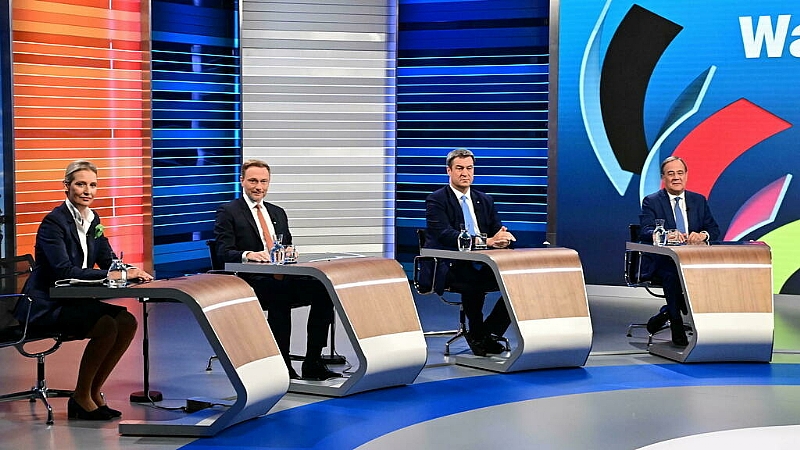
[ad_1]
The three candidates hoping to succeed Angela Merkel as German Chancellor, and the four leaders of the other parties currently in parliament, clashed Thursday on various issues in the last televised debate ahead of Sunday’s elections.
Unlike previous debates which repeatedly focused on climate change, poverty and other national topics, the candidates also discussed foreign policy issues for the first time.
Olaf Scholz of the center-left Social Democrats, who is currently Germany’s finance minister, said closer cooperation within Europe was needed, but at the same time the EU should keep working in close collaboration with the United States and NATO.
“We are the big country in the middle of the European Union with the largest population and the greatest economic strength,” Scholz said. “And therefore, we have to make sure that Europe speaks with a more united voice.”
His closest rival, Armin Laschet of the center-right Union bloc, also called for a stronger and more united Europe, adding that the continent should cooperate on joint arms projects.
“We need more Europe, we have to speak with one voice,” said Laschet. “We have to start projects together, weapons projects too so that we can act together.”
Green Party candidate Annalena Baerbock said Europe needs to find a common approach on how to interact with China.
“I want to make sure that we create a united European approach to China in which one (EU) country does not play against each other,” she said.
Housing shortage
Candidates and party leaders also clashed over how to resolve housing shortages in major German cities, tackle hatred on social media, and tackle the radicalization of the pandemic restrictions protest movement.
Merkel’s bloc Union and her chancellor candidate Laschet have made small gains in the polls in recent weeks. But it remains narrowly behind the center-left Social Democrats, led by Scholz.
The Greens, who are presenting their own candidate for chancellor for the first time, are in third place, but could play kingmakers when it comes to forming a government.
The close race and the number of parties with significant support means that the next government will be determined by post-election coalition negotiations between at least two and more likely three parties.
Merkel, Chancellor since 2005, is not running for a fifth four-year term.
Just over 60 million Germans will elect a new parliament. The party with the most seats will seek to form a coalition government and have its candidate chancellor elected by lawmakers.
(With PA)
Source link